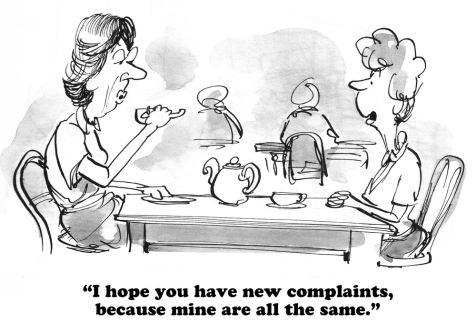Spring has sprung, April is upon us as we are already a week in. Easter is a week away, and for many teachers and students around the country, that means a much needed and well-deserved Spring Break.
Once Spring Break is over, everyone comes back to school with a single purpose in mind: get through the last weeks of school as quickly as possible. I have written before about how some teachers and students begin a countdown until the end of the school year, checking off each day as one day closer to “freedom.”

The hard fact is that teaching is an increasingly stressful occupation. I receive calls every day from teachers all over the country who confess with some chagrin and no small amount of regret that they are experiencing symptoms of burnout. They need to escape, and while I can help in that area, the more immediate concern is what to do about the stress until they can make their getaway?
Unchecked and uncontrolled stress will make you sick!
Because I want to help, I have developed a short course on how to keep your sanity and navigate these final weeks of school with some sense of peace and ease.
Want to know more?
Take a look at this video, and I will explain.
In this short course, I cover 7 specific strategies designed to help you manage your stress more effectively…not just during these final weeks of school, but all the time. The strategies are:
- Mindset (Attitude)
- Healthy habits (staying physically strong and well)
- Controlling your environment
- Managing your workload more effectively
- Using the 5-Second Rule (thank you Mel Robbins!)
- Setting better boundaries
- Asking for help when you need it
Each module in the short course includes information and instruction along with recommendations and suggested resources selected to help you implement the strategy for the week.
Each module is designed to help highlight areas where teachers, in particular, tend to fall into certain traps.
For example, get a group of teachers together and listen to their conversation. I can guarantee that in less than five minutes, the complaining will start. Not that the complaints aren’t legitimate because I would venture to guess that they probably are. The trouble is that complaining without doing something about the object of the complaint is not only not helpful, but it can also become counterproductive.

The trouble with complaining with a friend about things at work is that it validates your perception of reality, and if you feel aggrieved, it adds to your sense of righteous indignation. Venting can be healthy, but too often, complaints devolve into gossip which can be dangerous and even more counterproductive.
Don’t get me wrong. I am not above gossiping. (I am human, after all.)
I was especially guilty of it when I was teaching, however. The lounge invited gossip of all stripes. Gossip about students, their parents, the principal, and anyone who happened to be out of the room at the time.
Here’s the thing about gossip. While it can seem harmless enough, sometimes, it becomes harmful. Especially if it turns out to be wrong or untruthful, it can certainly hurt the person who is the object of the gossip.
Gossip seems to be built into our DNA. I don’t know anyone who is above engaging in it although my grandmother was pretty good about avoiding it. In fact, I never heard her say a single negative thing about anyone. She would listen silently to a conversation about someone in the community or at church, and invariably, if she did speak, it was to offer something positive about the person in question. But she was the rare exception.
In fact, if you think about it, we thrive on gossip, don’t we? Why is the National Enquirer so popular except that people love the juicy headlines on the cover each week. Even if you don’t buy it, you take a look at the cover as you wait in line at the grocery store, don’t you? Magazines like People and others thrive on gossip about celebrities, and we are eager to hear all the details.
Too often, teachers thrive on gossip about each other. And it is hurtful to the culture of the school in general.

I would like to suggest that one way to better manage your stress between now and the end of the year is to become mindful of your own habit as it relates to gossip…even gossip that seems harmless.
You see, it is not just an empty phrase that mindset is critical to your success or that attitude is everything.
Your attitude creates the frame through which you view your life. If you are constantly on the hunt for something that you can criticize or complain about, you will find plenty of things about which to complain and criticize and you will be extremely unhappy with your life.
During these last few weeks of school, strive to find positive things to say, and look for the positive in each situation that arises. It may feel hard at first. But it will become easier with practice. Changing the way you view things can make a huge difference in your attitude, and once your attitude changes, everything around you changes…like magic.
If you would like to know more about how to manage these final weeks of school with ease, click here and learn more about the program I am offering. It is a great deal as far as your investment of time and money, and it may make a huge difference in how you wind up this school year.
Happy Spring!



